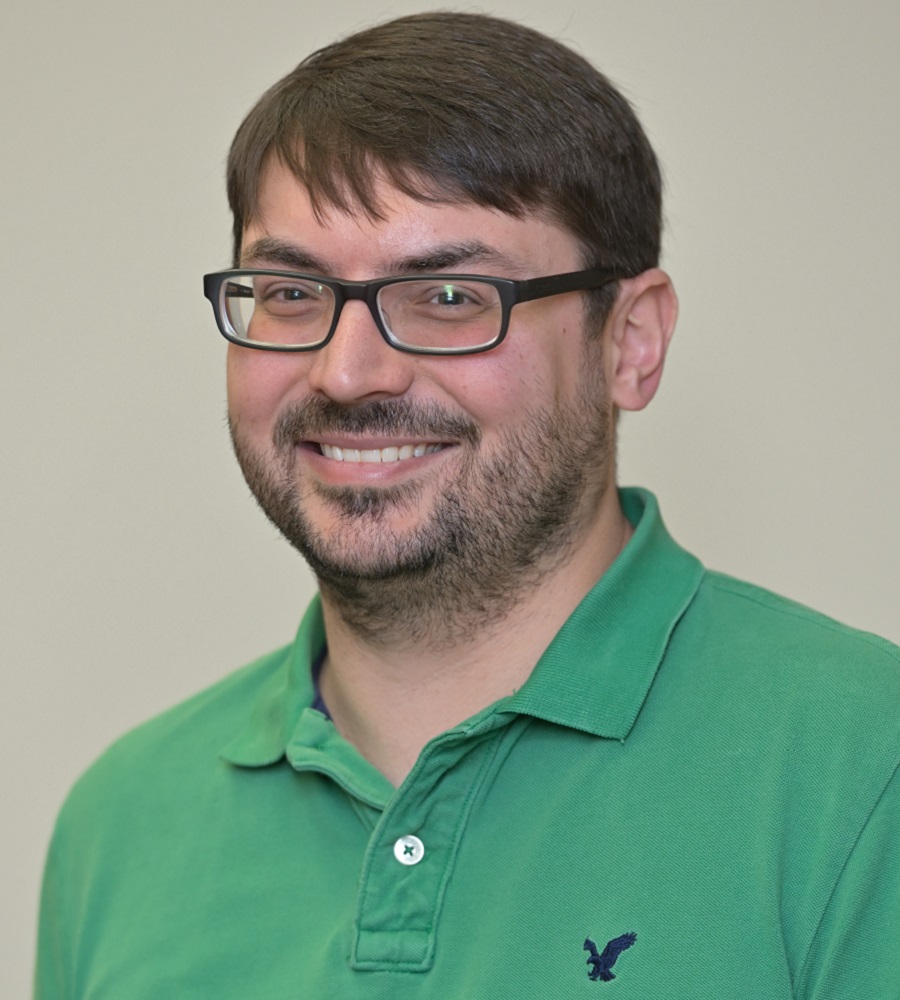Tyler F. Beck, Ph.D.
Program Director
Office of Drug Development Partnership Programs
Contact Info

Biography
Tyler Beck is a program director in NCATS’ Office of Drug Development Partnership Programs, where he manages several of the Center’ data science-focused programs. Beck’s major program foci include the Biomedical Data Translator consortium as well as the LitCoin project. These programs aim to allow researchers to easily access vast amounts of biomedical research knowledge through a combination of cutting-edge technologies such as natural language processing, knowledge graphs and computational reasoning engines.
Beck earned his Bachelor’s degree in bioinformatics and computational biology at the University of Maryland, Baltimore County, as well as a Master’s degree in applied molecular biology. He earned his doctorate in molecular and human genetics at Baylor College of Medicine in the laboratory of Daryl A. Scott, M.D., Ph.D., studying both mouse models and patients who exhibited congenital diaphragmatic hernia, a common developmental disorder.
After graduate school, Beck served in a two-year, postdoctoral fellowship at the National Human Genome Research Institute in the laboratory of Leslie G. Biesecker, M.D., working on several projects involving mosaic disorders, such as Proteus syndrome, as well as studies of the validity and value of next-generation sequencing for clinical applications.
It was while working on the Sanger validation project that Beck became interested in program management work, and he left the National Institutes of Health to become a scientific program officer for the American Society for Radiation Oncology (ASTRO). During his time there, he helped establish several new funding opportunities for radiation oncologists through collaborations with other organizations and revised criteria for accepting posters to improve the quality of research being presented at the ASTRO annual meeting.
Research Topics
Although Beck has left the realm of “bench science,” his work in the Biomedical Data Translator program is very much a research effort, with the goal of building a tool that can answer complex biomedical questions for researchers and facilitate the development of new treatments for human disease. Beck’s work now focuses on enabling research through new technology development and improving the accessibility and usability of biomedical knowledge.
Selected Publications
-
Systematic Evaluation of Sanger Validation of Next-Generation Sequencing Variants
-
FBN1 Contributing to Familial Congenital Diaphragmatic Hernia
-
Novel Frem1-Related Mouse Phenotypes and Evidence of Genetic Interactions With Gata4 and Slit3
-
Deficiency of FRAS1-Related Extracellular Matrix 1 (FREM1) Causes Congenital Diaphragmatic Hernia in Humans and Mice


